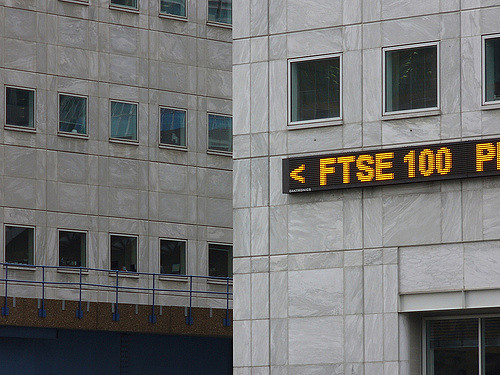FTSE 100 opens lower after weak GDP data fuels recession fears; BP drops on CEO resignation
Shares of BP dropped 1.6% after the oil major said its CEO Bernard Looney resigned on Tuesday, with immediate effect, for failing to fully disclose details of past personal relationships with colleagues.

- Country:
- United Kingdom
London's FTSE 100 opened lower on Wednesday after data showed economic output in July contracted at the fastest pace this year, sparking recessionary concerns, while shares of oil giant BP fell after its CEO resigned.
Both the exporter-heavy FTSE 100 index and the mid-cap FTSE 250 index declined 0.2% each in early trade. British economic output contracted by a larger-than-expected 0.5% in July from June, data showed, worse than what economists had forecast in a Reuters poll that pointed to a contraction in gross domestic product (GDP) of 0.2%.
The GDP data underlined signs that the economy is weakening, perhaps by more than the Bank of England had expected ahead of its September policy meeting. The sterling eased 0.4% against the U.S. dollar after the data.
Asian shares fell after Wall Street wobbled overnight, with markets bracing for key U.S. inflation data on Wednesday, while an oil price spike stoked anxiety about persistent price pressures, complicating the interest rate outlook. Shares of BP dropped 1.6% after the oil major said its CEO Bernard Looney resigned on Tuesday, with immediate effect, for failing to fully disclose details of past personal relationships with colleagues.
(This story has not been edited by Devdiscourse staff and is auto-generated from a syndicated feed.)
ALSO READ
Asian Football Highlights: Al-Hilal's Winning Streak and Key Transfers
Strengthening Ties: Haryana and British Columbia Explore New Horizons
Vijender Singh: From Olympic Medallist to Asian Boxing Council Member
Punjab Strengthens Ties with British Columbia: A New Era of Trade and Cultural Exchange
AI Surge Propels Asian Stocks Amid Economic Optimism










